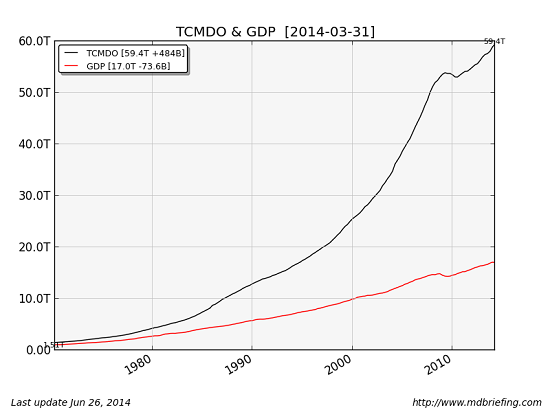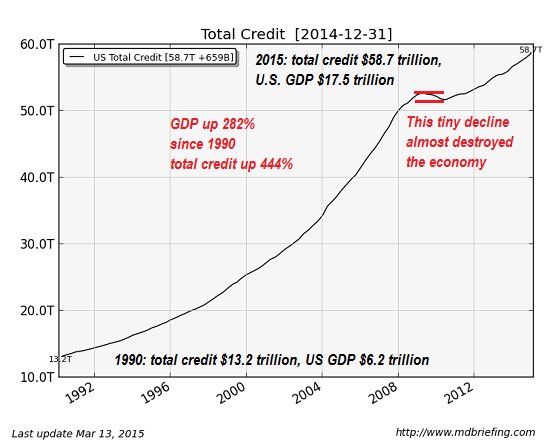The Voters Know It
If the American Dream depends on skyrocketing debt built on a weakening foundation of stagnant productivity and income, then it is indeed over.
Despite a ceaseless propaganda campaign declaring all is well with the U.S. economy, the Status Quo is fragile–and voters know it. Not only do they know the economy–and their financial security–is one crisis away from meltdown, they’re also fed up with all the official gerrymandering of data to make the economy appear healthy.
The Economy Is Better — Why Don’t Voters Believe It?
The American Dream–characterized by plentiful jobs offering living wages, security and opportunities to get ahead–is over, and voters know this, too.People are realizing the U.S. economy has changed assets–that is, a crash. The global central banks have pushed that repricing forward seven years by lowering interest rates to near-zero (or less than zero), enabling borrowers to add more debt even though their incomes have stagnated or declined.
But enabling more debt does not reverse supply-demand imbalances or create income out of thin air. As a result, piling on more debt is not a solution; it’s simply a politically expedient method to forestall the crisis, while guaranteeing the eventual repricing will be even more severe because the debt load is now so much larger.
Unsurprisingly, adding more debt to a weakening base of real productivity and income yields diminishing returns. Seven years of strong, widely distributed global growth before the 2008 Global Financial meltdown required $15 trillion in additional non-financial global debt. Seven years of tepid, fragile expansion since 2008 required $40 trillion in additional debt.
That is the definition of diminishing returns:

In the U.S., debt has completely outpaced the expansion of goods, services and income for years: look how debt has soared while GDP has expanded only modestly:

GDP (not adjusted for inflation) is up 282% since 1990, while total credit skyrocketed 444%. The tiny decline in credit in the 2008 Global Financial Meltdown almost destroyed the entire credit-bubble dependent economy:

Meanwhile, earned income as a percentage of GDP has been falling for decades. How can an economy support additional debt if earned income is declining as a percentage of economic activity? It can’t.
The post The Voters Know It appeared first on LewRockwell.
Leave a Reply